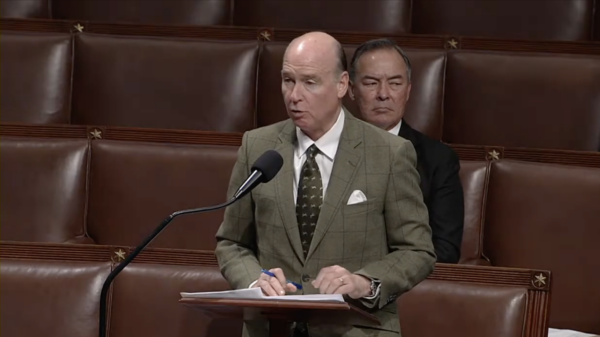U.S. Senator Katie Britt, R-Alabama, signed onto a letter sent to U.S. Department of Commerce Secretary Howard Lutnick last Thursday, urging Lutnick to help address illegal Chinese fishing vessels.
The letter, signed by Britt and U.S. Senator Rick Scott, R-Florida, alleged that fishers from China—the largest exporter of seafood to the U.S.—are engaging in illegal, unreported and unregulated, IUU, fishing at the cost of the U.S. seafood industry.
The letter cites a 2021 report from the United States International Trade Commission, which found that nearly 11 percent of U.S. seafood imports in 2019 were derived from IUU fishing.
It also cited a 2017 study from non-profit Global Financial Integrity that reports that IUU fishing generates an estimated global profit of $15.5 to $36.4 billion annually.
“We urge you to take immediate aggressive action, which means fully enforcing the ‘High Seas Driftnet Fishing Moratorium Protection Act’ by imposing the toughest possible sanctions on seafood from Communist China and other nations that continue to abuse human rights on the high seas,” the two senators wrote to Lutnick.
“IUU fishing is not merely a fisheries issue—it is a direct assault on our economy, our values, and the rule of law,” the letter reads.
The senators go on to allege that Chinese IUU fishers are “flooding” U.S. markets “with products tainted by forced labor, environmental destruction, and blatant disregard for international law.”
“Chinese fishing fleets are notorious for their gross human rights abuses, including the use of forced and child labor—often from persecuted minorities like Uyghur Muslims and North Koreans,” the senators wrote. “These vessels operate with impunity, decimating marine ecosystems and undercutting honest American businesses with artificially low prices. The result: American fishers are driven out of business, and American families are left vulnerable to unsafe, unethically sourced seafood.”
The senators cited a 2023 article from Politico, which reported that Chinese fish processing plants, which were importing fish into the U.S., used North Korean and Uyghur laborers forced into employment by the Chinese government.
Importing fish from such processing plants constitutes a violation of 2021’s “Uyghur Forced Labor Prevention Act,” which requires U.S. Customs and Border Protection to block the import of goods produced by Uyghurs in Xinjiang Province in response to forced labor programs conducted by the Chinese government on Uyghurs. Importing products from processing plants that utilize North Korean workers also violates the 2017 “Countering America’s Adversaries Through Sanctions Act,” which blocks the import of products made with North Korean labor.
The letter also cited a 2021 study from a national security think tank, the American Security Project, documenting the environmental damage caused by Chinese IUU fishing.
The letter argued that the “High Seas Driftnet Fishing Moratorium Act” is being underused. The act allows the National Oceanic and Atmospheric Administration to impose penalties, including import restrictions and port denials on nations engaging in IUU fishing.
The senators criticized the Biden administration’s use of the act to block certain Chinese, Mexican and Russian fishing vessels tied to IUU fishing from entering U.S. ports as “performative,” arguing that products from such IUU vessels are not imported directly into U.S. ports.
“We must act with meaningful purpose—banning imports of all seafood from Communist China and other rogue nations, holding them accountable for their crimes, and defending American jobs,” the letter read.
Britt’s office pointed to the senator’s support for the “Illegal Red Snapper and Tuna Enforcement Act,” sponsored by U.S. Senator Ted Cruz, R-Texas, which seeks to counter IUU fishing conducted by Mexican fishers on small ships in the Gulf of Mexico.
Alongside Britt, the act, which would direct NOAA to develop a field test to determine the country of origin of imported red snapper and tuna, was cosponsored by U.S. Senator Tommy Tuberville, R-Alabama; U.S. Senator Roger Wicker, R-Mississippi; and U.S. Senator Brian Schatz, D-Hawaii.
The act passed in the U.S. Senate in July and currently awaits committee approval and final passage in the House.




















































